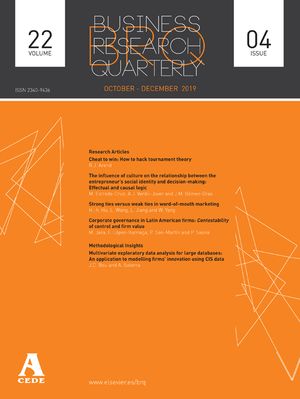Este estudio, basándose en el marco teórico de Porter (1980), examina la interacción existente entre la estrategia competitiva y la madurez industrial, así como su efecto en los resultados económicos. En particular, pretendemos comprobar si la madurez industrial afecta negativamente al desempeño económico para cualquier tipo de estrategia competitiva (hipótesis universalista), o bien, si la madurez de la industria afecta distintivamente al desempeño económico en función del tipo de estrategia seguida (hipótesis contingente). A partir de una muestra de 403 pequeñas y medianas empresas españolas, se observa que la madurez industrial produce un efecto negativo sobre el desempeño económico para cualquier tipo de estrategia competitiva. Este resultado respalda la argumentación universalista. Al mismo tiempo, se comprueba que la intensidad de ese efecto es diferente entre distintas estrategias, lo cual avala la argumentación contingente. Ambos resultados se corresponden con un escenario misceláneo, que hemos convenido en denominar «contingente híbrido».
This study utilized Porter's (1980) framework to empirically investigate the interactive effects between competitive strategy and industry maturity on firm performance. In particular, our study tests whether industry maturity exerts a negative influence on firm performance regardless of competitive strategy type (universalist hypothesis), or whether industry maturity exerts a different influence on firm performance according to the type of competitive strategy (contingent hypothesis). From a sample of 403 small and mediumsized enterprises, results of empirical examination show that industry maturity has a negative effect on economic performance for any type of competitive strategy. This result is consistent with the universalistic approach. At the same time, from a comparative point of view the intensity of this effect is different depending on the strategy, which supports the contingency approach. Both peculiarities present a miscellaneous scenario, which has been named «hybrid contingency».
Este trabajo ha sido financiado por la Generalitat Valenciana (GV05/125) y la Fundación Caja Castellón-Bancaja (P1 1A2005-11).




